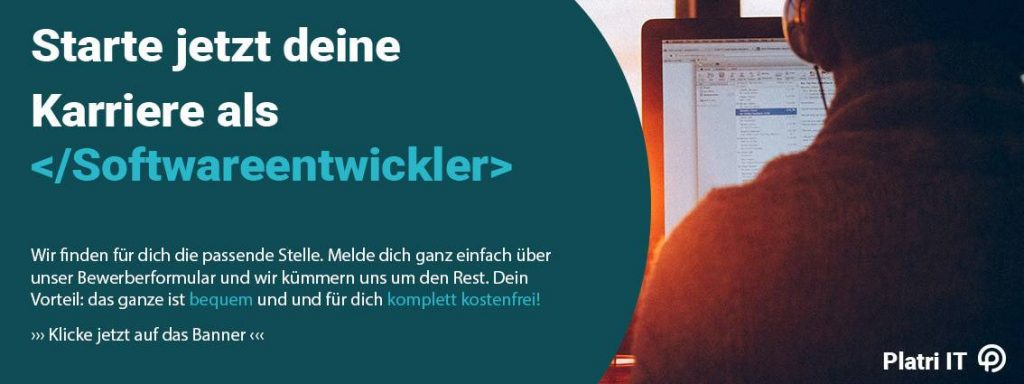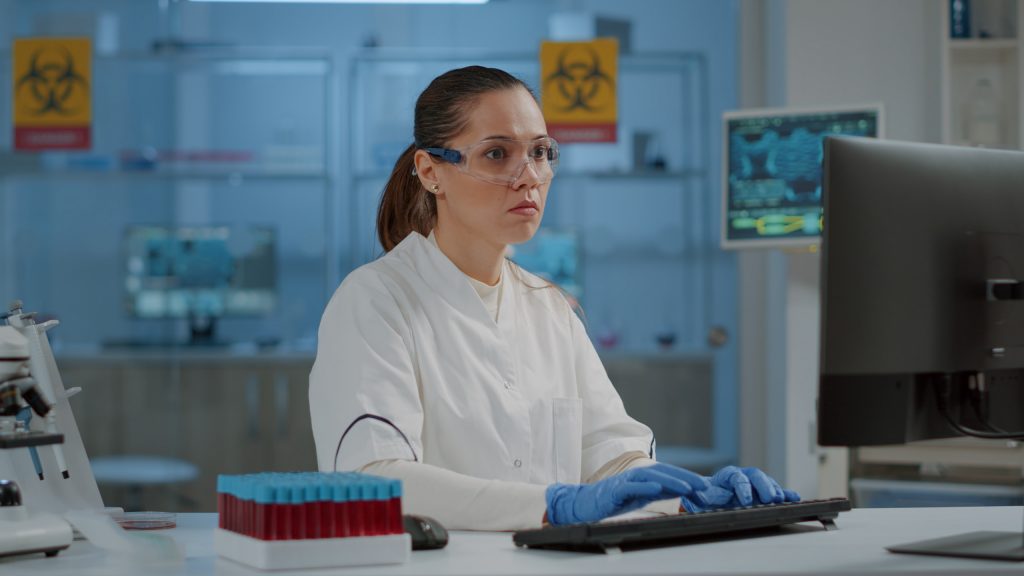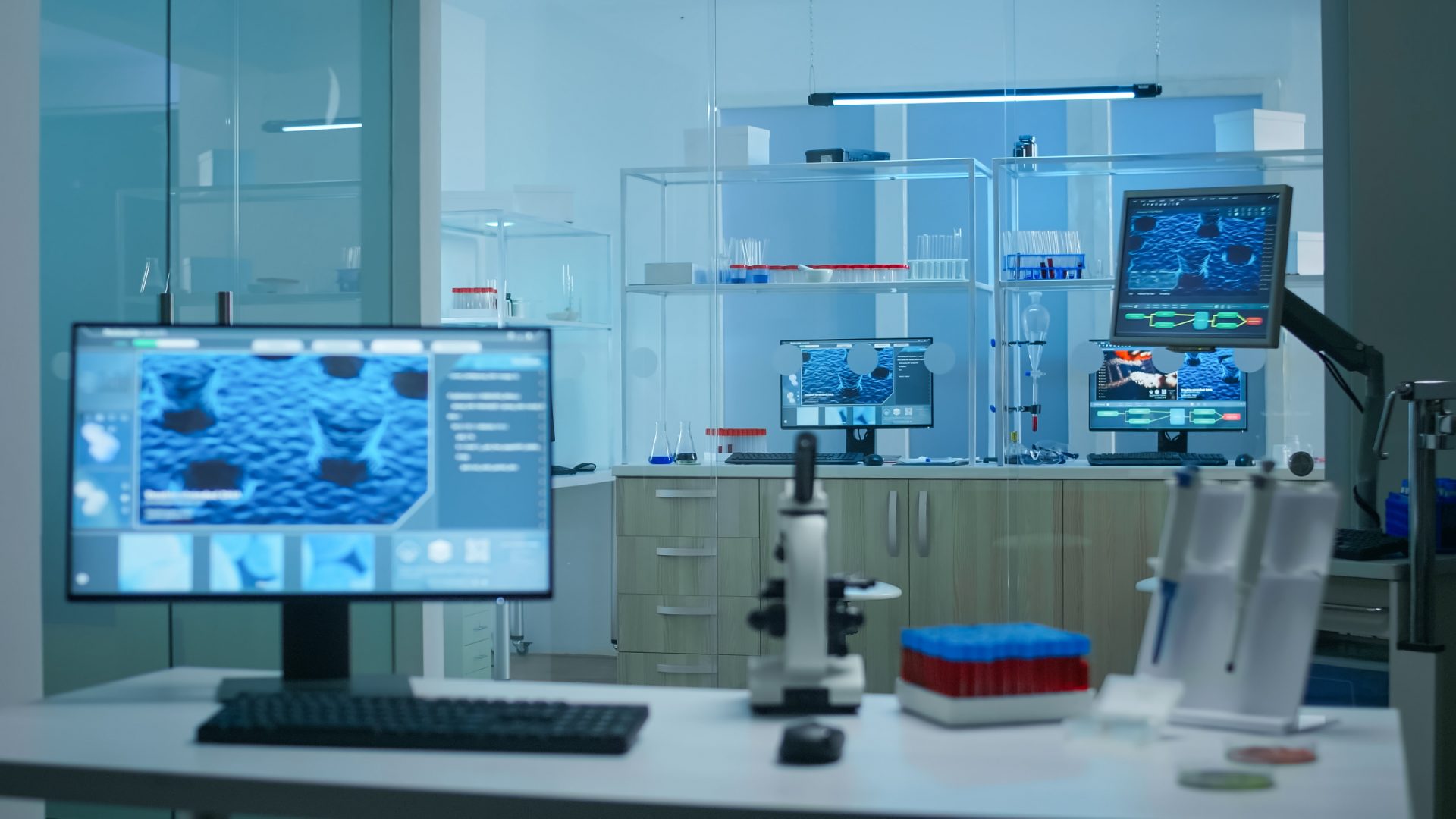Medical informatics – definition, tasks & salary
The medical industry is in a constant state of change. More and more hospitals and medical practices are harnessing the power of digital technologies to improve the patient experience and increase operational efficiency. Medical informatics is playing a key role in this process. But what exactly is medical informatics? And where can you work in this field?
Table of contents
What is medical informatics?
Medical informatics is a branch of information technology that deals with the…
- Recording
- Processing
- Storing
- Usage
of medical data.
Medical informatics can be used in many different areas, for example in:
- Telemedicine
- Digital imaging
- Health care in general.
There are many companies in Germany that are active in the field of medical informatics. Some of these companies specialize in specific areas, while others offer a broader range of services. Among the best-known companies in this field are Siemens Healthineers, Roche Diagnostics and Philips Healthcare.
Tasks of a medical informatics specialist
The activities of a medical informatics specialist include the planning and development of IT systems for hospitals and medical practices, the implementation of EMR/EHR systems and the analysis of genetic data sets. In addition, medical informatics specialists are often responsible for training professionals in the use of medical software.
What does a medical IT specialist earn?
Most career starters have a university degree in (medical) informatics or a related course, such as biomedical engineering or biometrics. The earning potential as a medical IT specialist is very good. Depending on qualifications and experience, career starters can expect a gross annual salary of 40,000 to 60,000 euros. Specialists with several years of professional experience can earn up to 100,000 euros per year.
Medical informatics is an exciting and diverse field with lots of potential for career prospects. If you are interested in this field and have the relevant qualifications, it might be worth considering whether this profession is for you!

Where does a medical computer scientist work?
The most popular fields of work for medical IT specialists are:
- Hospitals
- Doctors' offices
- Pharmaceutical companies
- Consulting companies
- Medical care centers
- Public health departments
- IT service providers
- Software and data base providers
- Research and development

Studying medical informatics - a course with a future
Medical informatics is a relatively new course of study that deals with the collection, processing and use of data and information in the healthcare sector. With the use of modern technology, it is becoming increasingly important to provide patient data quickly and reliably.
The Medical Informatics degree program imparts knowledge in the following areas:
- Medical technology
- IT systems
- Epidemiology
- Pathology
Students also learn how to collect, process and use data. The course is very varied and interesting. There are many opportunities to apply what you have learned in everyday practice.
After graduating, graduates have many different fields of activity open to them. For example, they can work in research or contribute to the development of new IT systems for the healthcare sector. Graduates of the course are also in demand in hospitals and care facilities. They take on tasks such as the organization and planning of hospital operations or the management of patient data.
The job market for medical informatics specialists has grown strongly in recent years and will continue to do so. Due to the increasing demand for IT specialists in the healthcare sector, the “Medical Informatics” course offers excellent career prospects.
Medical computer scientists are creative lateral thinkers who find IT solutions for complex problems in the healthcare sector. If you are looking for a varied and interesting course of study with a future, medical informatics is just right for you!

Where can you study medical informatics?
- University of Augsburg
- University of Heidelberg
- OTH Regensburg
- University of Lübeck
- Medical School Hamburg
- Bochum University of Applied Health Sciences
Further training opportunities in medical informatics
After graduating, you have many opportunities for further education. For example, if you want to expand your knowledge, you can also aim for a Master’s degree after your Bachelor’s degree. This can be completed in two years or four semesters. If you want to go into research, you need a doctorate. The highest possible academic degree that can be obtained is a doctorate.
To ensure that you are always up to date, it is a good idea to take part in so-called adaptation training courses. There is a wide range of opportunities for this. For example, in the fields of medical technology, software development or IT project management. Due to the fact that both medicine and computer science are constantly evolving, there are plenty of opportunities for further training as a medical IT specialist.

Do you have more questions about Medical informatics?
You can reach us from Monday to Friday between 9:00 am and 5:30 pm. We look forward to hear from you!
info@platri.de
Phone
0234 497 014 47
Do you have any further questions about our article, this topic or app development costs at Platri IT? Then please get in touch with us. If you are interested in a job at Platri IT, we look forward to your visit to our career portal. We look forward to hearing from you!

